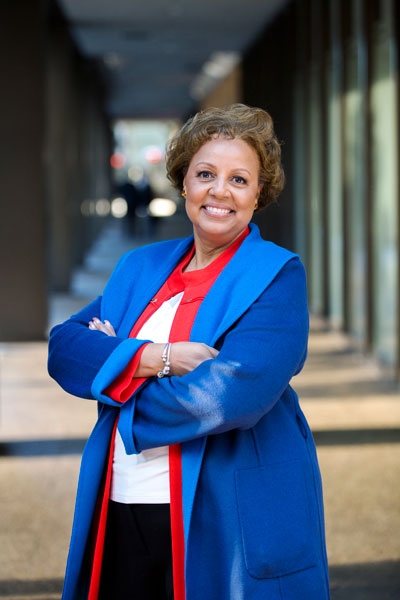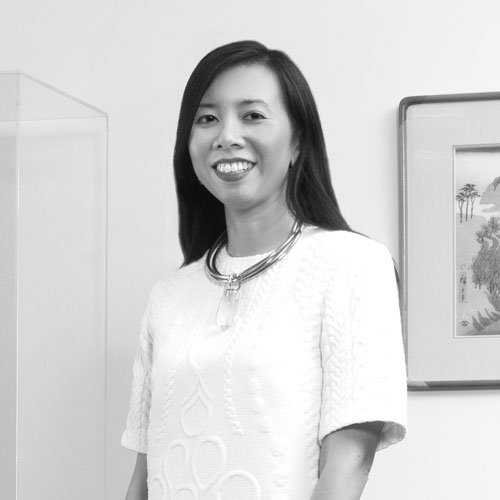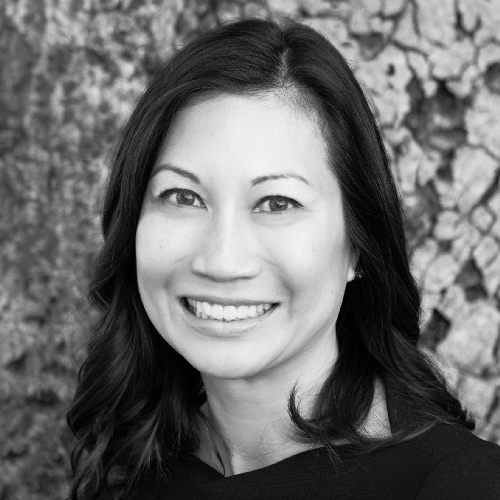When Blue Shield of California was founded in 1939 as California Physicians’ Service, it served about twenty thousand members. Since then, it has never stopped growing and improving. Today, it provides access to healthcare for more than four million members through its network of nearly sixty-five thousand physicians, thanks to the complex work of Hope Scott.
Part of that growth was the acquisition of Care1st, a subsidiary that allows Blue Shield to provide enrollees to Medi-Cal (California’s version of the federal Medicaid program) access to healthcare. “Care1st enables us to fully extend our mission of ensuring that all Californians have access to quality, affordable healthcare to the state’s fourteen million Medi-Cal patients,” says Scott, Blue Shield’s VP and chief risk and compliance officer.
Care1st also brings benefits that go beyond new patient populations. Founded in 1994, the managed care company established a highly engaged and extraordinarily effective level of customer service. This is particularly impressive in the Medi-Cal arena, which provides care to poor, underserved patients who face elevated health risks. To ensure patients receive appropriate care, Care1st developed close member relationships to help patients navigate the healthcare system and proactively take control of their health.

“Care1st knows its members, understands their neighborhoods and their concerns, and collaborates with other community resources to enhance their ongoing health and well-being,” Scott says. “We’re very eager to learn from them so we can incorporate those lessons across all our operations.”
With the addition of the new subsidiary, some current Blue Shield Medicare members might now also qualify as dual eligibles. This classification enables some low-
income seniors and people with disabilities in California to receive extended services through both Medicare and Medi-Cal.
Scott is part of the team that is handling Care1st’s integration into Blue Shield and making sure that its operations, objectives, and strategies are aligned. “There are so many positive synergies between Blue Shield and Care1st,” she says. “We want to do everything to facilitate them, not overwhelm and overengineer them.”
Before the acquisition, Care1st had one thousand employees and was small enough that its executive leaders were involved in many day-to-day decisions. However, as those leaders now take on more responsibilities, there is an opportunity for employees to expand their knowledge and skill sets to begin making those decisions themselves.
“Care1st is now part of a larger culture that provides extensive training, resources, and support so individuals can make appropriate decisions independently,” Scott explains. “With the right tools and fully understanding expectations, it will be very empowering for them.”
“I love that what I do and the decisions my company makes can have real, direct, and positive impacts on the lives of the people we serve.”
Blue Shield will also be putting more formal risk-management programs in place. Scott indicates that this has always been a company priority, but a comprehensive risk-management framework could become even more important to effectively navigate any changes to the Affordable Care Act.
Risk management is nothing new for Scott, though. She has been a passionate advocate for risk management, ethics, compliance, and privacy ever since her days as in-
house counsel with Independence Blue Cross in Philadelphia more than twenty years ago. During her tenure as one of the lead attorneys implementing the new Health Insurance Portability and Accountability Act (HIPAA) privacy regulations, she quickly recognized the impact privacy issues could have on the most personal levels. She saw that failure to keep health information confidential from certain family members, for example, could jeopardize individuals’ safety or impact whether they could maintain custody of their children.
“That was a turning point for me,” she says. “I realized that securing patients’ data wasn’t just complying with the law. These were tangible human connections with real repercussions that compel us as a company to act the way a thoughtful human being would to best serve our members.”
To help raise the profile of a different kind of compliance at Blue Shield, Scott recently launched a Medicare compliance initiative. She anticipates that this unique collaboration between the company’s Medicare business units and its risk-management professionals will bring the rigor of enterprise risk management to the highly detailed and stringent requirements of the Centers for Medicaid & Medicare Services’ (CMS) annual reviews.
“Integrating specific business units with the enterprise view will create a holistic perspective and raise accountability around all the factors that contribute to Medicare compliance,” Scott says. “The objective is to make ourselves the gold standard in that space, not just to succeed at checking off boxes for basic CMS compliance.”
In addition to her leadership, Scott says that staying curious about topics outside her own areas of expertise and remaining focused on professional development has helped sustain her career. She believes that any position should contribute to an individual’s broader objectives. Simultaneously, she often investigates seemingly unrelated specialties, such as finance or IT, that ultimately enhance her capabilities and lead to new opportunities.
The integration of Care1st is a perfect example. In addition to focusing exclusively on ethics, risk management, and compliance, she also studied how the company manages operations, structures contracts, and builds relationships with community organizations.
“If you only do what your job title requires and stop being curious about what’s going on around you, you stagnate and become a less effective leader and employee,” she says. “I love that what I do and the decisions my company makes can have real, direct, and positive impacts on the lives of the people we serve. I’m proud of using my time and talent to help make those good things happen.”


